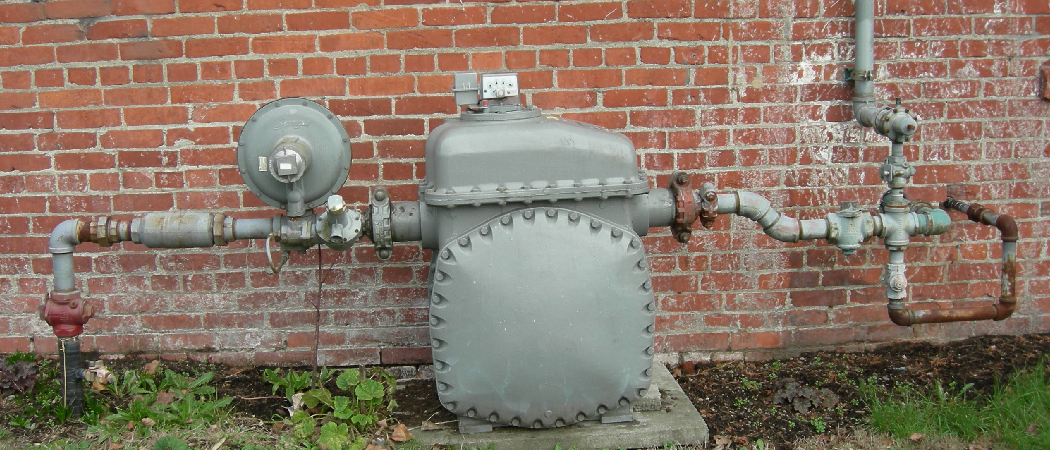In the quiet corners of our daily lives, the background hums of household appliances often go unnoticed, weaving into the fabric of domestic white noise. Among these sounds, one might wonder, “Do gas meters make noise?” It’s a question that prompts both curiosity and a measure of concern.
The soft ticking or a subtle hum can be perfectly normal, yet recognizing what sounds signal normal function and what may indicate a problem is crucial. This understanding keeps safety at the forefront, especially when it comes to gas appliances.
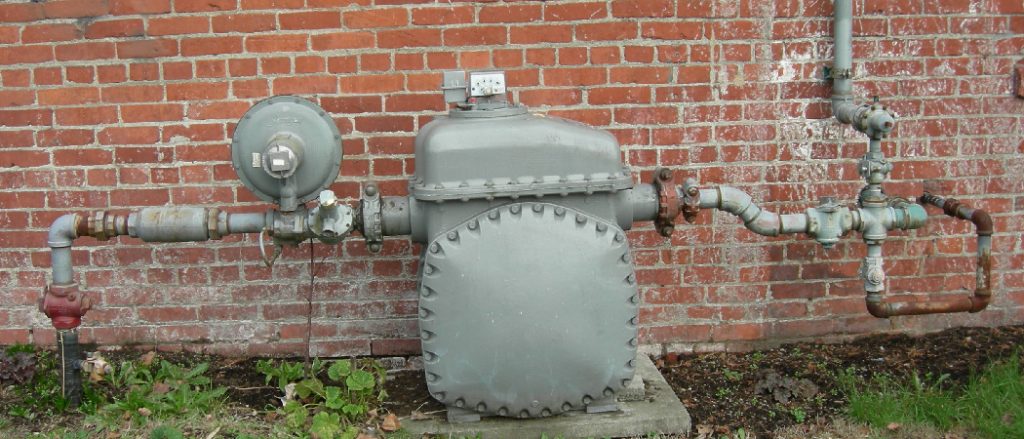
As we delve into the acoustic signature of gas meters, we’ll explore the potential causes of these noises, suggest practical solutions, and advise when it is time to call a professional. With attention to detail and a proactive mindset, homeowners can ensure their environment remains both serene and safe.
What a Gas Meter Is and Anatomy of It
What is a Gas Meter
A gas meter tracks the amount of natural gas or propane used in a home, business, or commercial building. With this measurement and billing data on hand, utility companies can charge customers only for what they use. For example, a family using gas heat may require less fuel during the temperate spring months than their neighbor, who uses it for cooking and clothes drying.
Anatomy of a Gas Meter
A gas meter is typically composed of an outer cover, a pipe inlet and outlet, and internal components consisting of the measuring mechanism, regulator, and shut-off valve. These elements work in concert to deliver gas safely to your home while tallying usage throughout the billing period for accurate calculation.
Types of Gass Meter
Gas meters come in a variety of types, each with its own unique functionality and design. The most common types include:
- Diaphragm Meters: These are the most widely used type of gas meter, utilizing a flexible diaphragm to measure gas flow.
- Rotary Meters: These meters use rotating pistons to measure gas flow and are commonly seen in larger commercial buildings.
- Turbine Meters: Turbine meters use a turbine wheel to measure gas flow, making them highly accurate and commonly used for high-pressure gas systems.
- Ultrasonic Meters: Utilizing sound waves to measure gas flow, ultrasonic meters are becoming increasingly popular due to their accuracy and ability to handle large volumes of gas.
- Smart Meters: These advanced meters use digital technology to measure and transmit gas usage data remotely, enabling more accurate billing and real-time monitoring of usage.
Do Gas Meters Make Noise?
In short, yes, gas meters often make noise. However, the type and volume of sound can range from barely audible to quite loud. Softer noises are typically nothing to worry about, whereas louder sounds may require further investigation.
Normal Noises
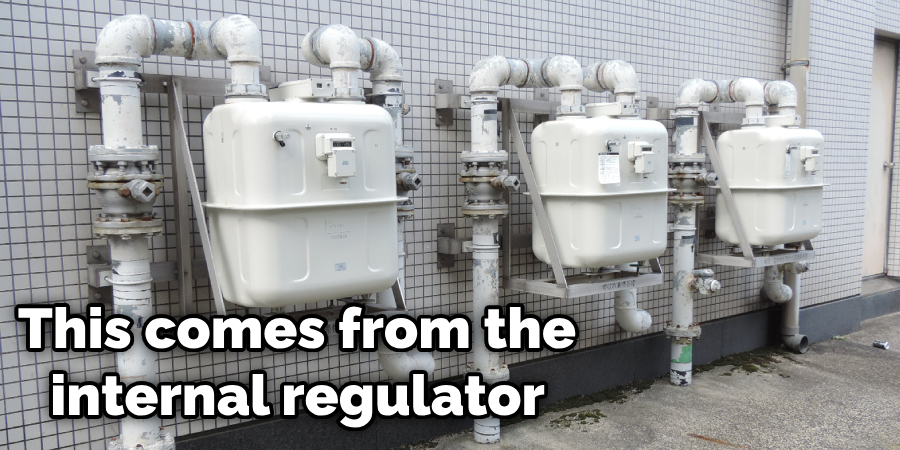
The most common noise associated with a gas meter is a soft ticking or faint humming. This comes from the internal regulator and measuring mechanism as gas flows through the pipes. These noises are completely normal and should not be a cause for concern.
Abnormal Noises
Loud banging, clanking, or hissing sounds coming from your gas meter may indicate a problem that requires attention. These noises could signal issues with the internal components or even an external leak. If you hear any of these sounds, it’s important to contact your gas company or a professional technician immediately for an inspection.
The Whispers and Whines: Common Gas Meter Noises
An array of sounds can emanate from a gas meter, and understanding these can help distinguish between benign operation noises and warning signals that require urgent attention.
The Gentle Click: Normal Operation Sounds and Their Frequency Expectations
Hearing a gentle clicking sound from a gas meter is typical and is often the result of the meter’s regulator and valves opening and closing to regulate the flow of gas—mirroring the consumption within the home. The frequency of these sounds varies with gas usage; they are more common during peak usage times when appliances like furnaces or stoves are in operation.
The Persistent Hum: Investigating Continuous Humming Noises and Potential Causes
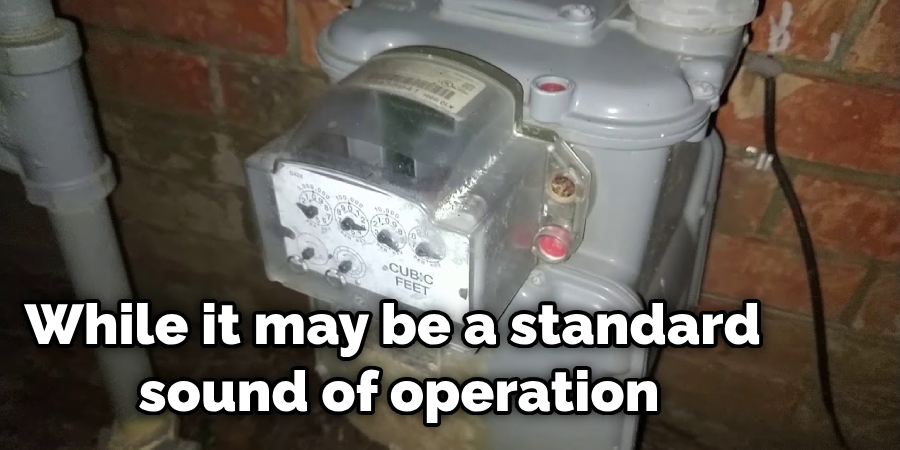
A continuous hum from a gas meter should prompt a routine check. While it may be a standard sound of operation, persistent humming can also suggest an overworked regulator or a vibration in the pipes due to unstable gas flow or pressure inconsistencies.
The Hissing Suspect: Differentiating Normal Gas Flow Sounds from Concerning Gas Leaks
A hissing noise when gas is not actively being used could be a telltale sign of a gas leak and should be treated as a red flag. Distinguishing this sound from the normal quiet flow of gas is critical, as a gas leak presents a significant safety hazard and requires immediate professional intervention.
The Screeching Siren: Identifying Alarming Noises and Immediate Action Protocols
Any screeching or high-pitched siren-like sounds from a gas meter are unusual and alarming. These noises may point to a gas pressure issue or a faulty component within the meter. Homeowners hearing such sounds should evacuate the area and call their gas provider’s emergency line, as these noises could precede a more serious situation.
What Causes Gas Meters to Make Noise: Diagnosing the Cause
Several factors could contribute to the noise levels of gas meters. These include:
Changes in Gas Pressure
Fluctuations in gas pressure can cause vibrations, leading to humming or hissing sounds. Sudden changes in gas pressure can also create banging or clanking noises from the pipes.
Inadequate Maintenance and Aging Components
Refrain from regular maintenance on a gas meter to avoid excessive noise levels, especially if components wear out, become rusty, or fail. This issue is more common in older meters that may require replacement.
External Factors
Natural elements such as extreme temperatures, wind, and debris can cause rattling noises from a gas meter. In some cases, animals or insects may also find their way into the inner workings of a meter, causing noise disturbances.
Installation Issues
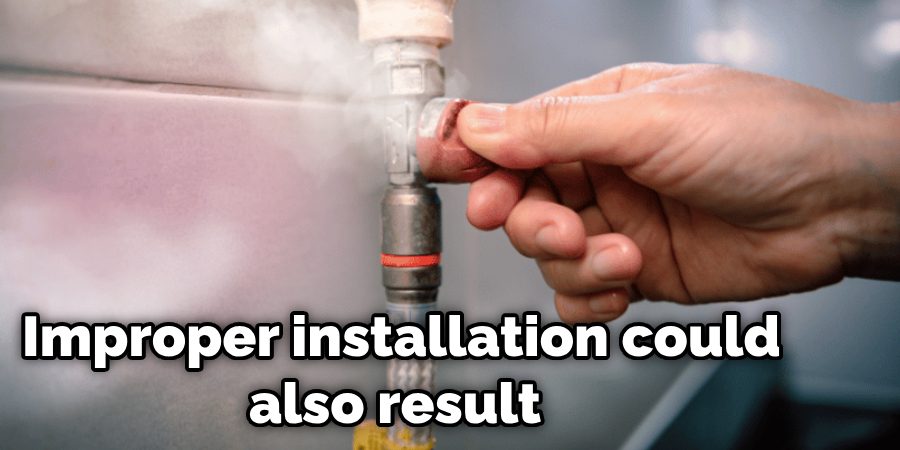
A poorly installed gas meter or incorrect sizing can lead to operational noises. Improper installation could also result in pipes rubbing against each other, creating a clanking sound.
What to Do If Your Gas Meter is Making Noise
Taking action when you notice unusual noises from your gas meter can help prevent potential safety hazards and costly repairs. Here are some steps to follow:
Listen Carefully and Identify the Sound
Pay attention to the type and frequency of the noise, as well as when it occurs. This information can help professionals diagnose potential issues efficiently.
Contact Your Gas Provider or a Professional Technician
If you suspect a gas leak or hear alarming noises from your gas meter, contact your gas company’s emergency line immediately. Otherwise, if you are unsure about the noises, it’s best to call a professional technician for an inspection.
Schedule Regular Maintenance Checks
Regular maintenance can prevent excessive noise levels and identify potential issues before they become serious problems. Contact your gas provider or a licensed technician for recommended maintenance schedules and services.
DIY Solution to Reduce Gas Meter Noise
While most gas meter noises do not require intervention, you can take some simple DIY steps to reduce the sound levels:
Insulate Pipes and Valves
Adding insulation around pipes and valves can help absorb noise vibrations. You can use foam tubing, rubber, or adhesive-backed felt pads for this purpose.
Lubricate Moving Parts
Regularly lubricating the internal components of your gas meter can help reduce friction and noise levels. Consult a professional technician for recommended lubricants and maintenance techniques.
Keep the Area Around Your Gas Meter Clear
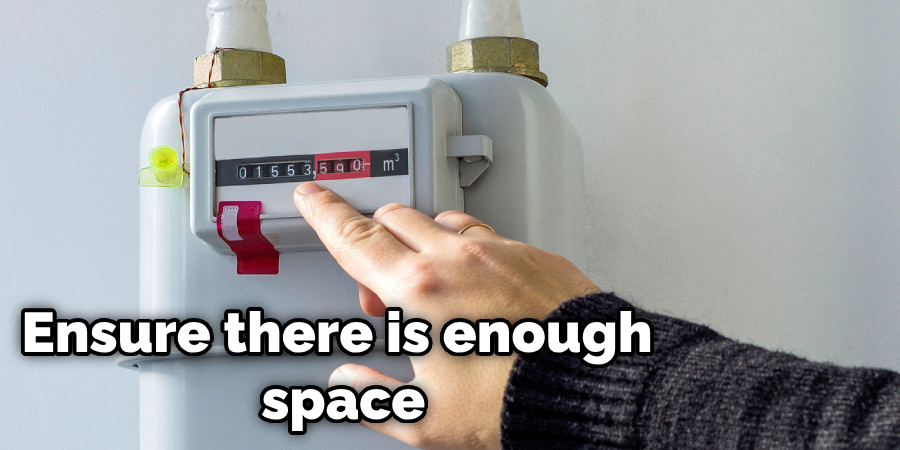
Remove any debris or objects around your gas meter that could cause rattling or other noises. Also, ensure there is enough space for proper air circulation to prevent pressure build-up that can lead to unnecessary vibrations.
Keeping Your Gas Meter Quiet: Maintenance Tips
To reduce excessive noise levels from your gas meter, here are some maintenance tips to follow:
Keep Your Gas Meter Clear of Debris
Make sure the area around your gas meter is free from debris, such as leaves, snow, or branches. This will prevent any hindrances to the natural flow of gas and minimize potential noises.
Regularly Check for Leaks
In addition to listening for noises, it’s also essential to visually inspect your gas meter regularly for any signs of leaks. If you notice any damage or unusual smells, contact a professional immediately.
Follow Installation Guidelines
If you are installing a new gas meter or replacing an old one, make sure to follow the manufacturer’s guidelines and hire a licensed technician for proper installation.
Monitor Your Gas Usage
Keep track of your gas usage to identify any unusual patterns. Sudden spikes or drops in consumption could indicate an underlying issue with your meter.
Gas Leak Safety Precautions: Understanding Risks and Immediate Response
Acknowledge the Hazards of Gas Leaks
Gas leaks pose serious safety hazards, including the risk of fire or explosion and exposure to harmful fumes. It’s important to understand the severity of these risks and to prioritize safety if a leak is suspected.
Evacuate the Area
If you suspect a gas leak, do not attempt to locate the source; this could ignite the gas. Instead, immediately evacuate the area and ensure that everyone, including pets, is a safe distance away from the suspected leak.
Avoid Sparks and Flames
Do not use light switches, matches, candles, or any other potential sources of ignition if you suspect a gas leak. Even small sparks can trigger an explosion.
Do Not Use Electronics Near the Leak
Cell phones, computers, and other electronic devices can create sparks. Use such devices only after you’ve safely evacuated the area of the suspected gas leak.
Call for Help from a Safe Distance
Once you’re a safe distance away, call your gas provider’s emergency line or 911 to report the gas leak. Provide them with all necessary details, including the location and any observations you’ve made.
Do Not Re-enter the Premises

After evacuating, do not go back into the building or area until professionals have given the all-clear. Gas leaks need to be managed by trained technicians who have the proper equipment to handle such situations safely.
Educate Family Members and Occupants
Ensure that all family members, housemates, or building occupants know how to respond in the event of a gas leak. Awareness and preparedness can significantly enhance safety for everyone involved.
Common Signs of a Faulty Gas Meter and When Replacement is Necessary
Identifying the early warning signs of a faulty gas meter is vital to maintaining safety and ensuring your system operates efficiently. Here are some common indicators that your gas meter may be malfunctioning:
Inaccurate Meter Readings
If your gas bills are unusually high or do not correspond with your actual usage, your meter might not be measuring gas flow accurately.
Physical Damage
Visible damage to the gas meter, such as cracks, rust, or wear and tear, may compromise its integrity and functionality.
Unexplained Sounds
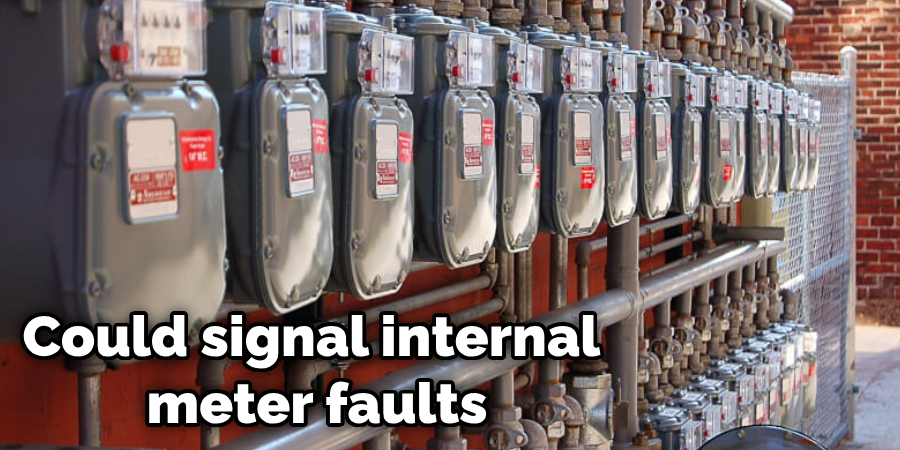
Persistent unusual noises, despite addressing external factors and installation issues, could signal internal meter faults.
Problems With Gas-Powered Appliances
Frequent pilot light outages or poor performance of gas appliances may be related to inconsistent gas supply from a faulty meter.
Age of the Gas Meter
Like any mechanical device, gas meters have a lifespan. Most gas meters are expected to last around 15 to 20 years. If yours is aging, consider scheduling an inspection to determine if it needs replacement.
When you observe any of these signs, it is essential to contact a professional technician to assess the condition of your meter. If the meter is deemed faulty, a replacement will be necessary to ensure the continued safety and accuracy of your gas supply. It’s important to pay attention to these indicators as they could lead to more serious safety hazards or, at the very least, inaccurate billing.
Conclusion
In conclusion, while the presence of noise is often a normal part of how mechanical devices operate, it’s not uncommon to wonder: do gas meters make noise? As we’ve explored in this guide, gas meters can indeed produce sounds as part of their regular function. However, excessive or unusual noise may be indicative of an underlying problem.
By performing routine maintenance, being vigilant for common signs of malfunction, and understanding the appropriate safety measures, you can ensure that a noisy gas meter doesn’t go unchecked. Remember, your swift response to irregular noises can make all the difference in maintaining safety, efficiency, and peace of mind when it comes to your home’s gas supply.

